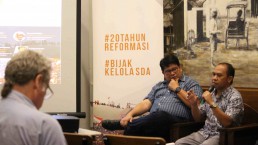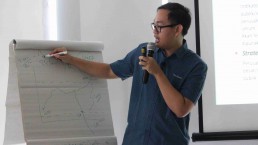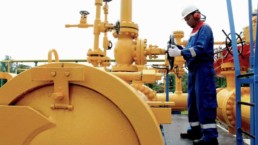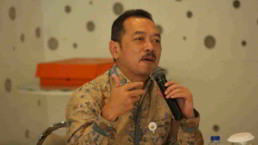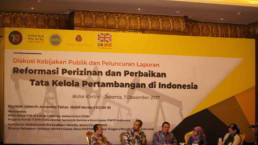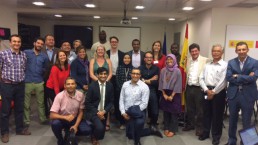“To reverse the resource curse, transparency and accountability is needed either in revenue and budget planning, community monitoring, inovative policy on governance as well as allocation of revenue share from extractive sector for poverty alleviation in rich resource areas.”
- Aryanto Nugroho, Program Manager
Considerable amount of revenue from natural resources supposed to improve well-being and reduce poverty and economic inequality in Indonesia. However, statistic shows that Indonesia is still shadowed by poverty (BPS, 2013). Interestingly, higher poverty is dominated by rich resources areas, such as oil, gas, mining, etc. Such situation where inequality and poverty, environmental degradation, revenue lost, and corruption in vary aspects of extractive sector which usually occur in rich resource areas is known as resource curse. Transparency of revenue from natural resource, participatory planning and budgeting for development, community oversight, strategy for poverty alleviation, and capacity building for stakeholder are needed to reverse the resource curse.
Publish What You Pay Indonesia (PWYP Indonesia) with support from Ford Foundation initiate Reversing the Resources Curse Program. This program aims to improve transparency and accountability of extractive industry and management of revenue from the industry for poverty alleviation program. Thus it covers all aspects from planning and budgeting, strengthening policy and institution, capacity building and empowerment, community monitoring, development of resource center for poverty alleviation program. In the demand side, this program focus on increase awareness of communities who lives nearby and impacted by mining areas towards rights of community, budget literacy, development of community center, accessible test of public information by community, social audit for extractive industry (community score card), and public monitoring on poverty alleviation program and spending of village funds.
This program is conducted in four piloting areas that are abundant with natural resources such as oil, gas, coal and mineral. We collaborate with our local coalition CSOs member in each piloting areas. They are MATA in North Aceh Regency of Aceh Province, Fitra Riau in Indragiri Hulu of Riau Province, Bojonegoro Institute in Bojonegoro District of East Java Province, and SOMASI in West Sumbawa of West Nusa Tenggara.
The program took four main approach: (1) Strengthening of stakeholder through capacity building, both in government and community who live around mining areas, (2) Promoting transparency and accountability of extractive sector, (3) Conducting social audit through development of community based monitoring on extractive industry and poverty alleviation program, (4) Policy innovation through development of policy in the regional level that related to poverty alleviation, revenue allocation for poverty alleviation, revenue share from extractive sector to village level, as well as development of sovereign welth fund from revenue of extractive sector.
In national level, this program consistently supports advocacy and campaign to promote improvement in the governance of extractive sector. For instance, through desemination and public forum on transparency of revenue and EITI initiative, research and advocacy on tax justice in the extractive sector, Baseline studies and publication of lesson learnt of advocacy in rich resource areas around Indonesia i.e Aceh, Bengkulu, Riau, East Kalimantan, Southeast Sulawesi, East Jawa, and West Papua.
Related News
INDEF asks the government not to burden BUMN Energy
Liputan6.com, Jakarta - Director of the Institute for Development of Economics and Finance (INDEF), Enny Sri Hartati, highlighted the government’s…
28 May 2018
